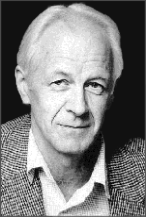Allan Wilson
| Allan Wilson | |
|---|---|

Allan C. Wilson (courtesy of the Allan Wilson Centre for Molecular Ecology and Evolution)
|
|
| Born | Allan Charles Wilson 18 October 1934 Ngaruawahia, New Zealand |
| Died | 21 July 1991 (aged 56) Seattle, US |
| Citizenship | New Zealand |
| Fields | |
| Institutions | University of California, Berkeley |
| Alma mater | |
| Thesis | Control of flavin synthesis by bacteria (1961) |
| Doctoral advisor | Arthur Pardee |
| Other academic advisors | Nathan O. Kaplan |
| Notable students |
Svante Pääbo Mary-Claire King Vincent Sarich Rebecca L. Cann |
| Known for |
Molecular clock |
| Notable awards |
MacArthur Fellowship ForMemRS |
Allan Charles Wilson (18 October 1934 – 21 July 1991) was a Professor of Biochemistry at the University of California, Berkeley, a pioneer in the use of molecular approaches to understand evolutionary change and reconstruct phylogenies, and a revolutionary contributor to the study of human evolution. He was one of the most controversial figures in post-war biology; his work attracted a great deal of attention both from within and outside the academic world. He is the only New Zealander to have won the MacArthur Fellowship.
He is best known for experimental demonstration of the concept of the molecular clock (with his doctoral student Vincent Sarich), which was theoretically postulated by Linus Pauling and Emile Zuckerkandl, revolutionary insights into the nature of the molecular anthropology of higher primates and human evolution, called hypothesis (with his doctoral students Rebecca L. Cann and Mark Stoneking).
Allan Wilson was born in Ngaruawahia, New Zealand, and raised on his family's rural dairy farm at Helvetia, Pukekohe, about twenty miles south of Auckland. At his local Sunday School, the vicar's wife was impressed by young Allan's interest in evolution and encouraged Allan's mother to enroll him at the elite King's College secondary school in Auckland. There he excelled in mathematics, chemistry, and sports. Wilson already had an interest in evolution and biochemistry, but intended to be the first in his family to attend university by pursuing studies in agriculture and animal science. Wilson met Professor Campbell Percy McMeekan, a New Zealand pioneer in animal science, who suggested that Wilson attend the University of Otago in southern New Zealand to further his study in biochemistry rather than veterinary science. Wilson gained a BSc from the University of Otago in 1955, majoring in both zoology and biochemistry. The bird physiologist Donald S. Farner met Wilson as an undergraduate at Otago and invited him to Washington State University at Pullman as his graduate student. Wilson obliged and completed a master's degree in zoology at WSU under Farner in 1957, where he worked on the effects of photoperiod on the physiology of birds.
...
Wikipedia
